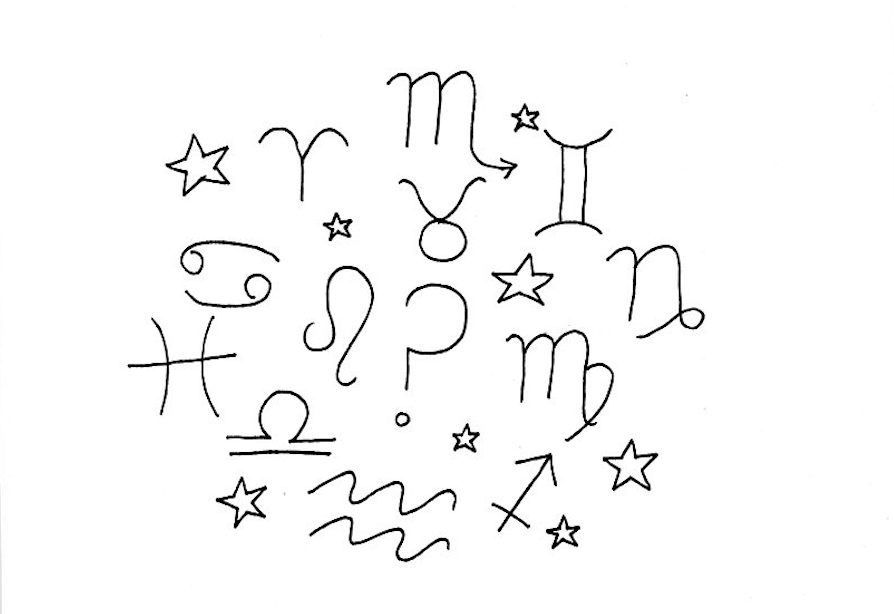My Opinion
As someone who was uneducated about the belief of astrology and zodiac signs, every time I read my horoscope or about the traits behind my sign, I played into the fun of it all. As an Aquarius, I am supposed to be someone who is independent, creative, friendly aloof, unpredictable, stubborn, and detached, which I thought were pretty accurate.
But now, knowing the facts, I struggle to see any correlation between the predictions and the zodiac signs. The mystery of it all was diminished after researching it.
People like to know what’s ahead of them and have something to define them. It is only human nature to feel insecure about one’s future and identity. I think that is why so many people are interested in reading their horoscopes. There will always be people who want something to support why they have their traits and to back up their actions.
The placebo effect is the effect of a treatment based on the person’s belief in the treatment.
According to physics professor at West Texas A&M University Dr. Christopher S. Baird,“The placebo effect is the mechanism at work with astrology. Many people believe in astrology. When they read their horoscope and follow its advice, they feel better. But it is the belief itself and not the astrology that is making them feel better.”
I found myself believing in the horoscopes because I wanted to believe it was true, not because there was any real science behind it.
Some people are stunned by the accuracy of the horoscopes and zodiac signs, but don’t be fooled; the predictions and traits are so broad that they could relate to a majority of the population one way or another. This is the barnum effect that is taking place, which is the phenomenon where one believes in certain information tailored to them, even though it is vague and can apply to all people.
On the other hand, some just like to read their horoscope for amusement. It can be a lighthearted way to pass some time and maybe get a laugh.
What is astronomy?
According to Merriam-Webster, astronomy is the study of objects and matter outside the earth’s atmosphere and of their physical and chemical properties.
Many people confuse this with astrology which is the divination of the supposed influences of the stars and planets on human affairs and terrestrial events by their positions and aspects.
How does astrology work?
According to journalist for HowStuffWorks Ed Grabianowski, zodiac signs are determined based on when someone is born. Each zodiac sign relates to a range of days in the year.
Astrology was created due to the lack of knowledge of astronomy according to Grabianowski. In c. 1800 BC, the Babylonians did not have the technology and science to understand the terrestrial events, so they made up stories for each zodiac sign based on their daily life.
According to Grabianowski, astrology is based on the observations and metaphorical ideas the Babylonians had on the terrestrial events. “Because Mars, which they called Nergal, was observed to be red, and blood is red, they aligned Mars with war. Ishtar, or Venus, appearing in the early evening when lovers were likely to be outside spending time together, was made to represent love and fertility. Mercury, hard to spot and fast moving, was associated with deceit and speed.”
Is it real?
NO: According to Baird, one study by research psychologist Peter Hartmann and his collaborators researched over 4000 individuals and found no correlation between birth date and personality.
In another experiment, Shawn Carlson had 28 astrologers make horoscope predictions and then tested the accuracy of their predictions using a scientifically sound method. The researchers had over 4000 middle-aged males take a personality test measured by MMPI (Minnesota Multiphasic Personality Inventory) and compared it to their birth date. Astrologists used this knowledge and found that they could do no better at predicting the future than random chance.
Another reason there is technically no truth behind astrology is that it defies the law of all forces. There are four forces that affect people: strong nuclear force, weak nuclear force, gravity and electromagnetism. All forces die off with a distance. For example, a nuclear bomb can vaporize you, but it loses its power with a distance. The gravity of a star technically extends throughout the universe, but its individual effect on the universe does not extend much beyond its solar system.
YES: According to Grabianowski, astrology is beyond science: it is linked to a sacred religious realm involving a person’s soul. Its influences extend to an ethereal, other dimension, where our laws of science do not hold true.
Student Reactions
After sharing their zodiac traits, students share their thoughts on the accuracy of horoscopes and their opinions on whether they believe in them.
As a Virgo, freshman Olivia Almy believes her horoscope is inaccurate and struggles to believe in it.
“Most of it isn’t accurate,” Almy said. “I don’t like trying new things and I’m definitely not organized, but I am shy at first and I do like planning things out in the long run. I also am not inspired by beauty at all; I could care less about that stuff. I don’t believe in zodiac signs and I think they are kind of overrated just because whenever I read about mine it’s never true.”
Senior Abby Chan, a Gemini, passionately expresses her opposition towards horoscopes.
“This was the most inaccurate stuff I’ve heard about myself, not only am I not emotionally intelligent, but I’m not a glass half full person and I only have one personality so how could I have two personalities,” Chan said. “They think they put in things that apply to everyone, but they still don’t apply to me.”
According to senior Bradi Mullen, although she does not believe in horoscopes, she still sees the scary accuracy of her horoscope.
“I think that the statements zodiac signs make about people are generalized but are still very specific and accurate towards that person,” Mullen said.
Senior Matt White admits that horoscopes can be entertaining, but does see them as anything more.
“I think zodiac signs are a fun procrastination mechanism, but I don’t think they truly act as much more than that,” White said. “The qualities used to classify different signs are too broad and often apply to anyone, which is why they seem to be accurate.”
Junior Kayla Dantz shares her knowledge on zodiac signs and her opinion that people are uneducated about the truth of astrology.
“What people overlook is that astrology is a lot more than one sign,” Dantz said. “Everyone has a complete birth chart with multiple signs in different aspects of their lives all dependent on how the planets and stars were aligned when and where the person was born. Some people, like my mother for example, are very strong in their sun signs which is the sign most people know of. This is because she has the same sign reappearing over and over again in her chart. But everyone is different.
Dantz speaks on how all of the commercialized astrology does not speak for the real aspects of this belief.
“Horoscopes are mostly scams because they rely only on a sun sign, which might be completely inaccurate if all other aspects of the birth chart are under different signs,” Dantz said. “If you look into it, astrology is a really cool tool because I do believe that the planets and stars have a strong effect on us.”


